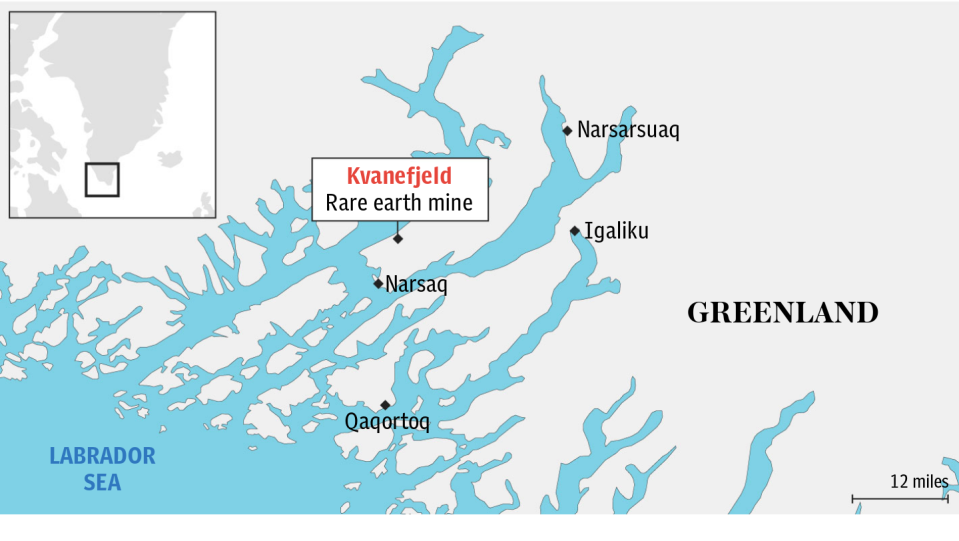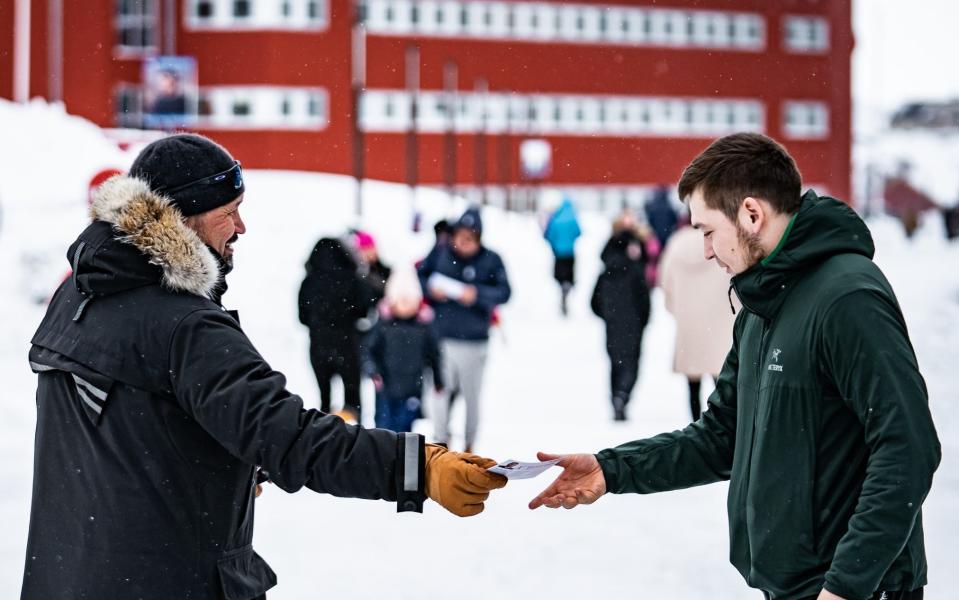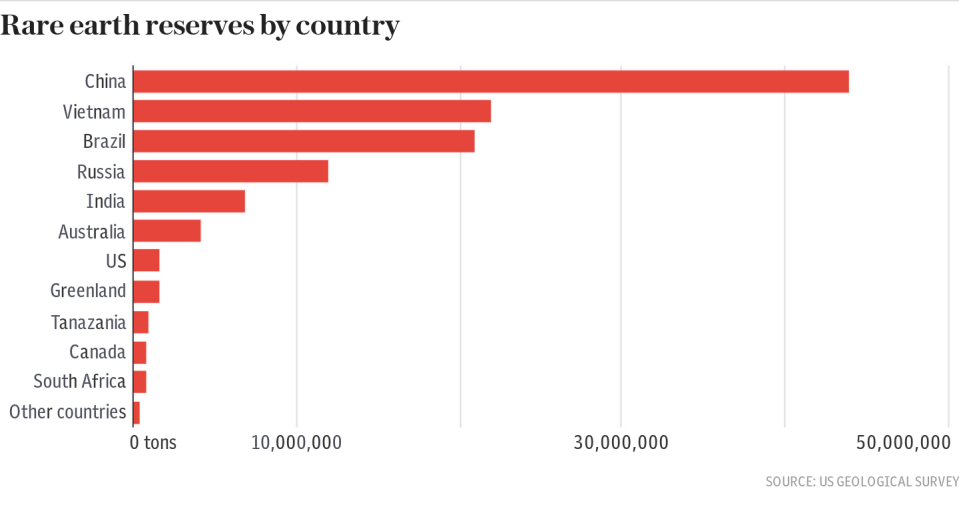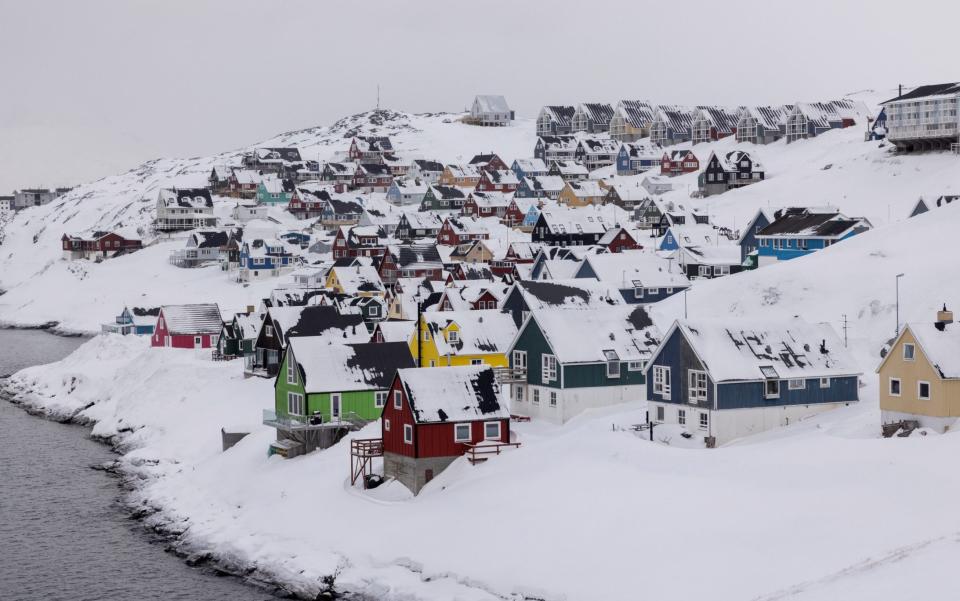Superpowers eye Greenland vote in scramble for Earth's treasures

AS elections go, it sounds rather minor-league: a contest with just 40,000 voters, triggered by a planning row in one of the most remote, inhospitable corners of the planet.
On Tuesday, though, diplomats from Washington to Beijing will be watching carefully as Greenland holds snap parliamentary polls.
With a total of population of just 56,000, its electorate is smaller than some British town councils – yet their vote over the vexed issue of the Kvanefjeld mine project could have implications not just for Greenland, but the global superpower race.
Overlooking the tiny fishing settlement of Narsaq, where locals live mainly off catching whales and seals, the project aims to tap into one of world's biggest deposits of "rare earth" minerals - materials as vital to the 21st-century as oil was to the 20th.
Their supermagnetic, superconductive properties are used in everything from i-Phones and solar panels through to hybrid cars and weapons systems.

Yet while they are key to the goals of a high-tech, low-carbon world, extracting them itself can be an environmentally-hazardous process - a point not lost on Greenland's residents, some of whom are sceptical of promises from the Australian firm behind the project, Greenland Minerals, that strict anti-pollution measures will be enforced.
The country's ruling Siumut party called Tuesday's snap polls amid growing rifts over the project, which has already led to rowdy public meetings and police called in to investigate death threats.
“The mine will destroy everything,” said Jens Davidsen, a Narsaq fisherman. “We are afraid dust from the mine will hurt our fishing grounds and drinking water.”
Frontrunners in the election are the Left-wing, pro-green Inuit Ataqatigiit party, who could throw the mine project out altogether, despite warnings from rival parties that Greenland's isolated economy must end its dependence on fishing.
But for others, the stakes are about much more than even that. Of particular concern is that Greenland Minerals is part-owned by Shenghe Holdings, a Chinese firm with close ties to the Beijing government.
Western diplomats fear that Beijing may be seeking to monopolise Greenland's rare earth deposits - giving it control over what is fast becoming the world's most valuable resource.

Such worries are underscored by the fact that Beijing already dominates the rare earth market as it is. More than half of all existing supplies are mined in China, which supplies the European Union with 98 per cent of its needs, and the US with 80 per cent.
With Greenland considered the last great untapped rare earth reserve - estimates run to up to 25 per cent of total resources – it is now the target of a new superpower "scramble”.
"Whether it's an Apple Mac or an F35 fighter jet, you can't make any smart technology without using rare earth minerals," said Dwayne Menezes, managing director of the Polar Research and Policy Initiative, a London-based international think-tank.
"They're also really important for a Britain that wants to be a leader on climate issues. All big offshore wind projects, for example, need rare earths - our entire transport, industrial and energy strategy depends on them."
Last month, his thinktank produced a new report, calling for a "Five Eyes critical minerals alliance" between Britain and its traditional intelligence allies - the US, Canada, Australia and New Zealand.
The report said that "Greenland offers the US and its allies the opportunity to reduce their dependence on China for resources essential to their defence and security."
It added that British mineral exploration firms were also operating in Greenland, and called for closer post-Brexit trade ties between the two nations.

The report comes in the wake of former US President Donald Trump's 2019 offer to "buy" Greenland from Denmark, just as the US bought Alaska from Russia in 1867.
While Mr Trump’s offer earned widespread ridicule - not least because Greenland is now semi-independent - it reflected a belated re-appreciation of Greenland's strategic importance.
Last year, the US opened a new consulate in Greenland's capital, Nuuk - its first to operate there since 1953. Mr Trump's successor, Joe Biden, who is similarly hawkish on China, has also ordered a review of America's dependence on Chinese rare-earth supply chains.
China is further wooing Greenland through its "Polar Silk Road", an infrastructure project geared around new shipping routes opening up through the melting of the Arctic ice cap.
However, plans by Beijing to invest heavily in key Greenlandic infrastructure - include an old naval base and a new airport - have been sidelined by Denmark, allegedly at Washington's behest.
Greenlanders, meanwhile, are realising that sitting on the world's newest treasure trove puts them in a geopolitical tug-of-war.

A mineral boom shared out between just 56,000 people could transform living standards, as well as bring financial independence from Denmark, which currently subsidises a third of the Nuuk government’s budget.
Jens-Erik Kirkegaard, a former minerals minister who backs the Greenland Minerals project, said that rather than taking sides, Greenland wanted to be a "free and open market for everybody who wants to participate".
If Europe and the US were worried, he told The Telegraph, "they need to show more than just concerns, and start putting money into exploration".
But Mikkel Myrup, a local environmentalist, warns that if the Greenland Minerals project goes ahead, the stormy public meetings of recent months may be just the beginning.
"I am all for Greenland exploring its mineral potential, but this is not the project to start our mineral adventure with,” he said.
“China's own environmental record is not good, and if the Chinese government gets a foothold here, we will have to have a lot of other discussions - it is a non-democratic government with no respect for human rights."

